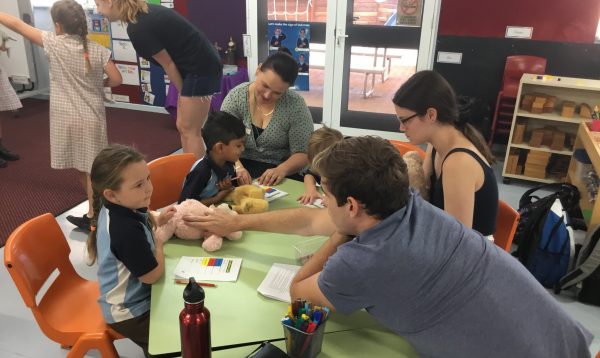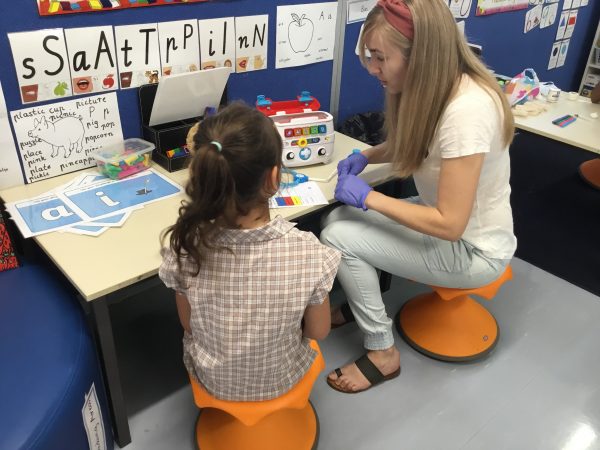Teddy Doctors get their bearings in Southern Cross
05 April 2019
It wasn’t a picnic that brought the Teddy Doctors to the town of Southern Cross recently, but a visit to St Joseph’s Catholic Primary School.
St Joseph’s students from Kindergarten to Year 2 brought teddy bears and toys to school for a day, where the Teddy Doctors, volunteer students from Notre Dame and Curtin universities’ medical schools ‘treated’ the special patients.
Part of the Wheatbelt Rural Health Immersion Program, the community medicine strategy assists children in becoming more aware of and comfortable with hospitals and medical treatment, while teaching them about health lifestyle choices, and developing the clinical skills of the volunteers.

St Joseph’s principal Rika Andres said the Teddy Doctors had a positive impact on the students’ overall wellbeing as they connected with real-life experiences.
“It enables the children to feel more comfortable and at ease visiting the doctor and other medical services,” she said,
The pop-up Teddy Bear Hospital consisted of four stations where the Teddy Doctors engaged through activities, songs and craft.
Teddicare cards were issued in the waiting room, consultations involved playing with bandages, stethoscopes and other equipment, and medicine (fruit and hugs) was dispensed at the nursing station.

Mrs Andres said engaging with the wider community was important to the school.
“The students always take an active interest in visitors such as Teddy Bear Hospital because they bring with them different knowledge and experiences to our small town and open their eyes to the many possibilities that are on offer to them,” she said.
Twelve students from Years 3 to 5 had the opportunity to interact with the medical students on a higher level during a Q and A session, with one bright eight-year-old impressing them with detailed knowledge of the digestive system.

The Wheatbelt Rural Health Immersion Program is run by the two medical schools, Rural Health West, WA Primary Health Alliance and the Wheatbelt East Regional Organisation of Councils and encourages graduates to work in areas of unmet need, such as rural medicine.
The students are billeted to families and spend four to five days in Southern Cross and surrounding towns.




